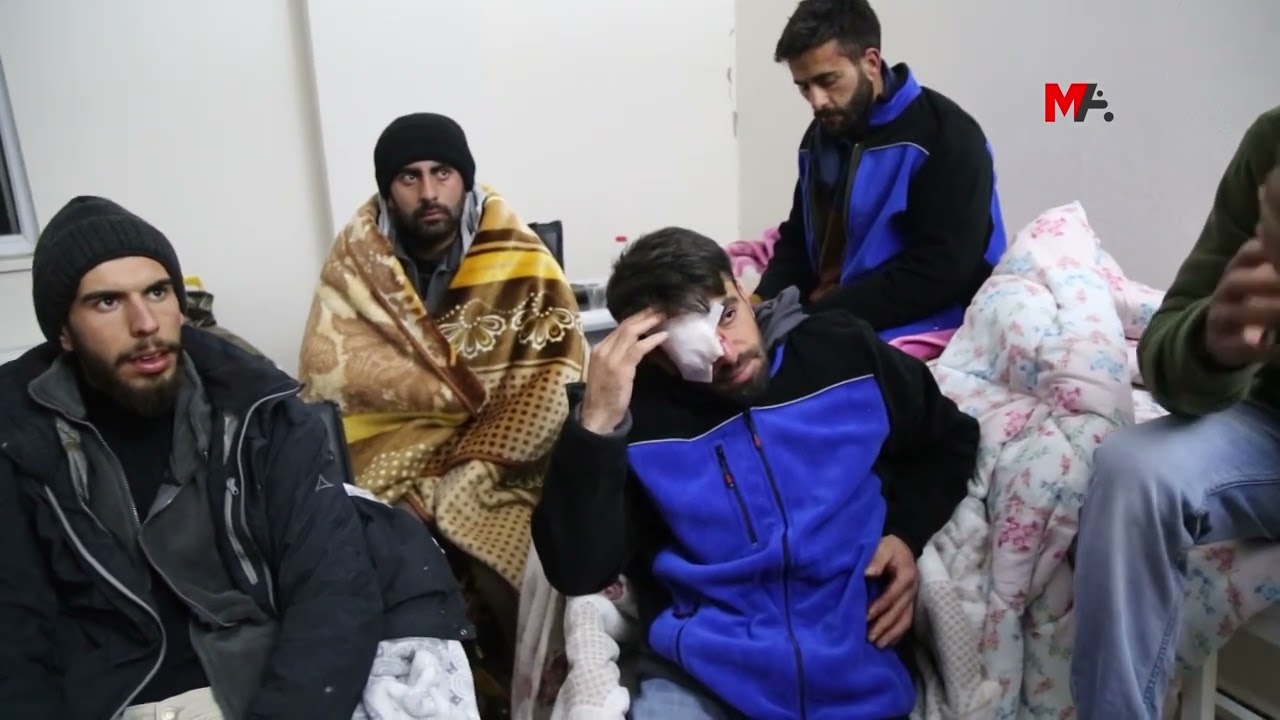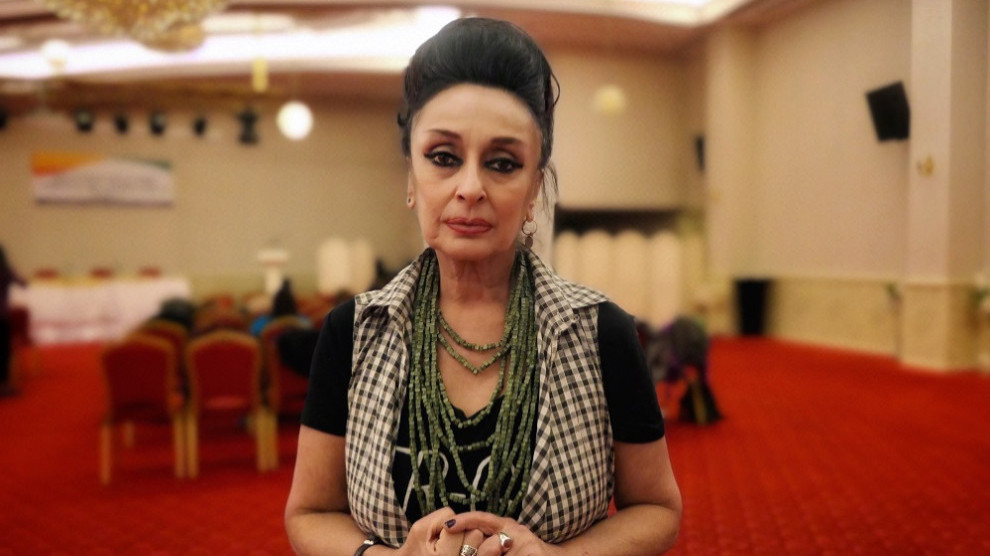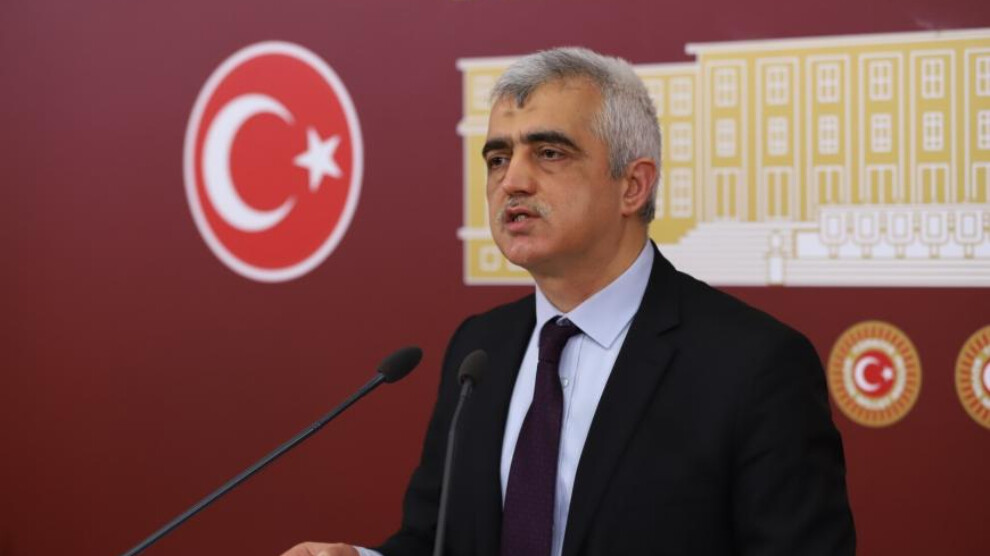On February 6, 2023, an earthquake struck 11 provinces and northern Syria, where there is a high
concentration of Kurdish Alevis. The earthquake affected Arabs, Turks, Armenians and other peoples
in the region, but had devastating consequences mainly for Kurds and Alevis. The earthquake directly
affected 13 and a half million people. Although the official Turkish state estimate is 50,000 dead, over
100,000 injured, 105,000 buildings destroyed and at least three times as many severely damaged,
there are claims that the actual figures are much higher. According to official data, 528’146 people
relocated to provinces in western Turkey with the state’s knowledge, not including those who left on
their own.
So, the cities in the earthquake zone are, Maras, Pazarcik, Elbistan, Adiyaman, Malatya and Antep,
were severely affected, are predominantly Kurdish Alevis; Hatay is predominantly Turkish Alevis;
Diyarbakir and Urfa are predominantly Kurdish; Osmaniye and Adana are cosmopolitan provinces
where also Kurds were forced to migrate as a result of the state’s security policies in the 1990s. This
region also borders Syria. It is a region where there has been a massive exodus of Syrian peoples. It is
not known how many refugees of Syrian origin live there. Even before the earthquake, Syrian
refugees were constantly discussed, with the state and Turkish nationalist parties and circles making
them a hot topic. There were racist attitudes towards Syrians.
The Turkish state was late in responding to the region after the earthquake. AFAD, Kizilay, the military
and the police were late in responding to the earthquake, while the world publicized the earthquake
and called for help. As the reactions in the press and on social media show, and as Turkish President
Erdogan has partially admitted, the majority of the deaths were caused by the late response. When
the Turkish state should have intervened first and rescued people alive, on 7 February, one day after
the earthquake, the President of the Republic used his powers to declare a state of emergency in 10
provinces, which became effective on 8 February.
The main purpose of declaring a state of emergency is to prevent criticism from democratic mass
organizations, associations, NGOs, to hide the real information from the public, to confiscate the aid
and support from the government and its affiliated institutions and to distribute it itself. The general
judgment of the people in the earthquake region, Adiyaman, Besni, Islahiye, Nurdagi, Golbasi,
Pazarcik centers and bays, Elbistan centers and bays, Hatay, search and rescue operations were
started late. In the first two days, people started the search and rescue with their own means, and
many people froze to death because of the cold weather. For example, Ahmet Ilkhan, uncle of
Mahmut Itmec in Pazarcik, told Fox TV that “his nephew had only a broken leg, but he died three days
later because no help arrived.” When search and rescue operations did begin, they were reportedly
launched primarily in Turkish and Sunni areas.
Kurdish Center for HR – pdf
There are similar criticisms about aid. There are serious criticisms that the aid is distributed
irregularly and that people are segregated according to their religious, ethnic and cultural
backgrounds. With the state of emergency, the state has stated that aid other than AFAD and Kizilay
will be confiscated. In this framework, incoming aid was confiscated in many places. The confiscated
aid has been distributed irregularly and unfairly to those who support the government, rather than to
all groups. In Hasankoca village of Pazarcik there was a charity and meal center established by HDP
which is confiscated by the Turkish regime and a trustee was appointed.1
In the beginning, aid was distributed to all segments of the population, but after the appointment of
a trustee by the district governor’s office, aid materials were delivered to certain segments of the
population.
The purpose of the declaration of the state of emergency was stated to be to carry out aid from a
single source in a healthy way and to get the region back on its feet. The real goal has been different.
The real goal was to prevent criticism, to come down hard on those who criticized, to put pressure on
civil society, to silence the opposition, to confiscate aid-support from different sectors and distribute
it to their own supporters; to make their own propaganda. On February 9, the Turkish state blocked
access to Twitter, while people under the rubble were using social media to describe their
whereabouts. The state of emergency gives the executive the power to further restrict movement
and communication in earthquake-affected cities. In their observations on the declaration of the state
of emergency, the Human Rights Association of Turkey (IHD), OMCT and FIDH noted that “President
Erdoğan had also referred to “fake news and distortions” when declaring the state of emergency and
said that “our prosecutors are identifying those who attempt to create social chaos with inhumane
methods and taking the necessary actions”.
Reports of malicious practices that restrict freedom of expression and media freedom and go beyond
a reasonable response to the earthquake have already begun to emerge. On the day of the
earthquake, RTÜK President Ebubekir Şahin tweeted that “No media organization [has] the right [to]
broadcast demoralising broadcasts” and that “it is not possible [for the Council] to ignore
organizations that broadcast manipulative broadcasts with malicious intentions.” The next day,
Evrensel reporter Volkan Pekal was detained in Adana for “video shooting without permission” on the
grounds that the shooting had been banned by the governor’s verbal order and was later released.
On the same day, police in Diyarbakır prevented journalists from covering the rescue efforts on the
grounds that a state of emergency had been declared and threatened to detain earthquake victims
who spoke to journalists. On February 7, an investigation was launched against two journalists,
Merdan Yanardağ and Enver Aysever, and a political scientist, Özgün Emre Koç, on charges of inciting
hatred and hostility against the public for criticizing the government’s response to the earthquake.
Koç was detained and later released. On February 8, Mezopotamya Agency reporter Mahmut Altıntaş
and JINNEWS reporter Sema Çağlak were detained while taking photographs of demolished buildings
in Urfa on the grounds that they did not have press cards issued by the Presidential Directorate of
Communications.
On the same day, Mezopotamya Agency reporter Mehmet Güleş and a search and rescue volunteer
he was interviewing were detained in Diyarbakır after the volunteer criticized the state’s inadequate
response to the earthquake. Both were released the next day under judicial control and charged with
publicly disseminating misleading information under the disinformation law even though the
https://www.birgun.net/haber/hdp-nin-pazarcik-taki-kriz-koordinasyon-merkezi-ne-kayyum-atama- 1
girisimi-421570
interview was not published. The Directorate General of Police Security announced on February 9
that 274 people were detained, 31 people were detained and nine people were arrested for making
“provocative posts on social media platforms to create fear and panic among our citizens”.
The state of emergency is also affecting rescue efforts and humanitarian aid, as the government has
politicised cooperation with local stakeholders despite inadequate central efforts. Humanitarian aid
from independent civil society organizations, professional associations, citizens’ initiatives and district
mayors’ offices run by the opposition Peoples’ Democratic Party (HDP) and Republican People’s Party
(CHP) have been prevented from reaching affected areas by governors at the behest of the central
government. “2
There are also serious concerns about serious rights violations in prisons in the earthquake zone.
There have been serious allegations in the press that during the earthquake, prisoners’ cells were not
opened, ventilation was not allowed, and the prison was kept closed despite the danger of collapse.
They were prevented from communicating with their families and receiving information. On February
7, three inmates killed in the T Type Prison in Hatay, where the earthquake struck, after a riot broke
out due to prisoners’ demands for transfer to a safe place and communication with their families,
which was violently suppressed.
The General Directorate of Prisons and Detention Houses of the Ministry of Justice has confirmed
that three prisoners were killed in Malatya Prison. According to press reports, some prisoners were
wounded in Malatya Prison as a result of an attack by soldiers. The IHD Prison Commission has
confirmed this, but so far there has been no statement from the Ministry of Justice. In Turkoglu
Prison, soldiers and guards are seen handcuffing prisoners behind their backs and putting them on
the floor with their mouths to the ground, a staff member is heard saying that there are cameras,
soldiers should move away, there are cameras, soldiers should not torture them.3
The Ministry of Justice has announced that there was an escape attempt in Turkoglu prison, but it
was prevented and prisoners were transferred to other prisons. We have received information that
the walls of Maras E-type Aksu prison have been breached, that no incidents have occurred and that
prisoners have been transferred to other prisons. Some of the prisoners in Adana Prison were also
transferred to other prisons without informing their families. However, we have not received
concrete information from the prisons so far. Some families of prisoners we spoke to expressed their
concern. 4
With the declaration of the State of Emergency, some images on social media show serious torture
cases. Following the government’s statements defending the declaration of the state of emergency
on the grounds of preventing “mischief-makers” and “looters”, there has been an increase in
allegations and reports of such violations. In Hatay, police detained Sabri Guresci, Ahmet Guresci and
two others on suspicion of theft. Ahmet Guresci was tortured to death, initially denied by the
gendarmerie, but in subsequent statements it is understood that he was tortured to death.
5 https://www.ihd.org.tr/ihd-fidh-omct-tarafindan-ortak-aciklama-depreme-mudahale-sirasinda-insan-haklarini- 2
koruyun/
3 https://www.dailymotion.com/video/x8i418w
https://www.ihd.org.tr/afet-zamaninda-da-mahpuslarin-yasam-hakki-devletin-sorumlulugundadir/ 4
5 https://m.bianet.org/bianet/kriz/274179-hatay-da-gozaltinda-olum
The images of torture on social media need to be examined. There are also cases of people being
tortured by security forces and forced out of the earthquake zone, not only for stealing, but also
because they are dissidents, because they are Kurds and because they came to the earthquake zone.
Five young men who had come to Adiyaman from Diyarbakir to help and rescue people stated that
they were tortured by the police and forcibly removed from Adiyaman. 6
Recently, football fans of the Turkish soccer team Fenerbahce, who chanted anti-government slogans
at the previous match, have been banned from attending this weekend’s game.
Also on 4 March 2023, a Kurdish football club, Amedspor was in Bursa for an away game, Bursaspor
fans also unfurled banners of “Beyaz Toros”, a white car model which is associated with deep Turkish
state, who kidnaped and murdered many Kurdish people in the past. During the night, a group of
Bursaspor fans attacked and chanted “Ne mutlu Türk’üm diyene”, ‘Happy to be Turkish’ slogans and
played the Mehter (Ottoman) anthem in front of the hotel where Amedspor was staying. The group
set off fireworks and swore at Amedspor fans.
Incidents of torture and lynching are more common, especially against Syrians as refugees. With the
manipulations of the government and those close to the government, many refugees of Syrian origin
have been subjected to torture on the grounds of theft. The Turkish government, using the
earthquake as an excuse, has been sending Syrian Arabs from Turkey to places like Afrin and Telabyad
in Northern Syria, which they had previously occupied. In this way, they are changing the
demographic structure of the region on the one hand, and forcibly expelling Syrian refugees from the
borders of Turkey on the other. As the Minister of National Defense announced that “40,000 Syrians
have been allowed to return”, the earthquake is being used as an opportunity.
At the same time as the earthquake, there are concerns about changing the demographic structure of
the Kurdish Alevi settlements such as Pazarcik, Elbistan and Adiyaman.
As the Kurdish Center for Human Rights, we closely feel the urgency of the earthquake. The
earthquake directly affected 13 and a half million people, millions of whom were left homeless. In
this period, we believe that all sectors, especially the state, should act in a spirit of solidarity to heal
the wounds of the socially affected people. However, the opportunistic approach of the AKP-MHP
government in view of the 2023 elections should be carefully monitored. We are worried both by the
state of emergency law it has enacted, its attempt to dismantle all municipalities, civil society
organizations and associations outside the AKP-MHP alliance, and its harsh approach to criticism. In
addition, we think that the fact that an organization like Kizilay, which is financed by taxes and
donations and which is supposed to help people in disasters and earthquakes, does not give tents to
earthquake victims, but sells tents and clothes to charities like AHBAP, and that this association gives
aid to the public, is a situation that needs to be examined thoroughly.
As the Kurdish Center for Human Rights, we demand that the High Commissioner for Human Rights
form a special team to observe the discriminatory policies of the Turkish state, the allegations of
torture and the situation in prisons on site and to reveal the truth.
https://www.diken.com.tr/deprem-unutturmasin-iskence-ve-nefret-soylemi-suc/ 6
https://www.bbc.com/turkce/articles/c9em4delzv1o
Get pdf of report :Kurdish Center for HR – pdf
15,Rue des Savoises /1205-Genève
kurd.chr.geneve@gmail.com
(022) 328 19 84 www.kurd-chr.ch



